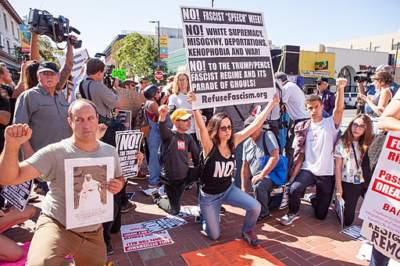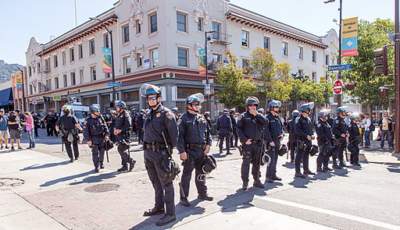Originally published in Ha’am.
I’m not going to waste too much space speaking to the importance of free speech, diversity of opinions and the benefits of engaging in lively academic conversation with those who disagree with us. Blah blah blah, kumbaya. These are all wonderful attributes that college students and faculty members alike will almost universally profess that we should pursue across the board on a college campus as part of the free exchange of ideas – which is all fine and dandy, except that it just isn’t happening in practice.
But it’s not. Speaking engagements across California and the UC system have been cut short, disrupted to the point of incomprehension or even preemptively cancelled due to security threats originating from protesters. At issue here isn’t Yiannopoulos’ abhorrent views on transgendered Americans or Coulter’s support for a ridiculous border wall. When campus activists form a human chain to block the doors of a venue to prevent a speaker from spewing their nonsense, as UCLA students did at a Yiannopoulos event in 2016, they are directly impeding Free Speech. And denying that is wrong and hypocritical.
Pro-Israel advocates reading this might be silently nodding in agreement. This is because anti-Israel protesters have developed a history of disrupting Israeli politicians and diplomats speaking on UC Campuses – most famously at UC Irvine in 2011, when a group of 11 protesters staged a disruption of Israeli Ambassador Michael Oren’s speech on that campus.
This is true, too, for the alternative (alt) right and far left protesters on campuses and in public spaces during the aftermath of the white supremacist rally in Charlottesville, Virginia in August. You don’t have to like anything that is said, but as long as it is peaceful, you are entitled to the same rights as your adversaries.
The emphasis on peaceful is key here. Too many of the demonstrations at political events this year – UC Berkeley comes to mind – have yielded violent results with fights sparked by individuals from a variety of backgrounds. Leadership for both far right and far left activist movements would gain credibility with the peanut gallery by insisting that the foot soldiers at rallies follow my preschool teacher’s mantra of “keep your body to yourself.”
In the wake of Charlottesville, it seems that despite the “many, many sides” we were told about, we are losing any nuance in identifying who the sides even are. Far right-wingers insist that all resistors are antifa (Anti-Fascists) or are paid protesters. Meanwhile, far lefties believe that all right-wingers are white supremacists or Nazis. This all or nothing approach to the free speech issue is dangerous – particularly when the attacks on speakers are coming from the left.
I worry that too many of my fellow progressives mistakenly believe that every single supporter of the Republican Party is a white supremacist Nazi and that all GOP’ers should be banned from speaking at UCLA. It sets a very dangerous tone to suppose that everyone we appear to disagree with is a racist – not to mention that the term Nazi is being thrown around a little too loosely only weeks after actual neo-Nazis marched publicly in Virginia. Denying someone a constitutional right on the basis that we disagree with them? That’s more abhorrent than anything that could come out of Milo Yiannopoulos’ mouth.
The Jewish community has a vested interest in protecting free speech for all parties – not just to protect the pro-Israel groups on campus but as part of our duty in the Great American project. The First Amendment defends religious practice too, and the U.S. would not be the Jewish hotspot it is without that line in the Bill of Rights. As one of the greatest beneficiaries of the First Amendment, the Jewish community is obligated not only to exercise free speech but also to fight that it remains in place. For everyone.
Zev Hurwitz is a graduate student in Public Policy at the UCLA Luskin School of Public Affairs.
![Berkeley_Free_Speech_Week_protest_20170924-8781 Protesters at UC Berkeley's Free Speech Week. | [CC BY 4.0] by Pax Ahimsa Gethen, via Wikimedia Commons](https://newvoices.org/wp-content/uploads/2017/10/Berkeley_Free_Speech_Week_protest_20170924-8781.jpg)


